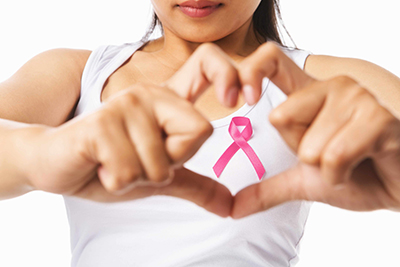Recent Posts
Emotional recovery after cancer treatment

From the moment you are diagnosed with cancer, your life is forever changed. It can affect the way you feel, think and act. You could feel many emotions including shock, guilt, anger, fear, sadness and depression. These emotions are expected, and your health care team is ready to support you.
During diagnosis and treatment
Every person is unique, and the way emotions are processed from the time of cancer diagnosis to treatment will vary. You may feel shock when you hear that you have cancer. Some people go into overdrive, gathering details, and the reality of the diagnosis doesn't sink in right away. Other people may feel anxious, angry or sad, or grieve a change in the direction of their lives.
It is common to feel a mix of emotions. Your health care team understands that this may lead to difficulty retaining the information you receive. They will encourage you to bring a support person to your appointments for an extra set of ears.
During this time, your health care team will answer your questions, provide resources and develop a treatment plan tailored to you. They will support you emotionally every step of the way.
Recovery and beyond
Your emotional state may shift after you complete the active treatment phase, such as completion of surgery, radiation or chemotherapy. You'll likely be eager to return to a more normal life, but you also may feel anxious about leaving the safety net of frequent contact with your health care team. You may ask "Now what?"
At this time, you may be offered the opportunity for a cancer survivorship care plan visit. During this visit, you will receive a summary of your cancer journey, and an outline of your diagnosis, treatments received, expected side effects, resources available and recommendations for ongoing surveillance.
A health care professional will discuss your plan and ask you how you are feeling physically and emotionally. This professional can be a touch point for you during your cancer recovery, and connect you to resources and answer your questions.
Emotional changes due to cancer
Cancer is a physical disease, but it can significantly affect your emotional health.
Survivorship differs with each person; yet, many survivors share these common emotions:
- Grief
We often think of grief as only occurring when a loved one dies. But it's common to feel significant grief after a cancer diagnosis and subsequent treatment. One can grieve the loss of time that was dedicated to treatment; a planned future; normal sensations following a mastectomy; or previous body image, like changes in hair or breasts. - Fear and anxiety
These emotions are normal and part of the body's automatic physiologic reaction. You may feel nervous about an uncertain future or lingering side effects. Cancer survivors may fear cancer recurrence and worry that every ache or pain is a sign that your cancer is back. In addition, financial and family pressures can affect your emotions, as well. - Sadness or depression
Lingering feelings of sadness can interfere with your daily life, but they should improve with time. For some people, these feelings persist and lead to depression requiring medical attention. - Anger
Many cancer survivors feel a sense of anger. Cancer may change many parts of your life, including relationships, as well as school, work and retirement plans. Anger is a normal response to those changes. It is important to express your anger in a healthy way. Talk about the way you are feeling with someone you trust. - Loneliness
You might feel as if others don't understand what you've been through. This can affect relationships and lead to loneliness. Friends and family might be unsure how best to help you and some people may even be afraid of you because you've had cancer.
Tips for emotional recovery
Talk with your health care team about ways to improve your resilience and emotional health. Some tips include:
- Manage stress levels.
A cancer journey could be the most stressful time in your life. Lean on the stress management techniques you used prior to your diagnosis. Exercise, spending time outdoors, meditation or using creative outlets can help lower stress and cope with your emotions. Online programs also can teach you strategies to manage stress and develop resilience. - Get enough sleep.
Your emotions are better regulated when you get enough sleep. Disrupted or poor-quality sleep can make you feel irritable and increase any negative feelings. It also decreases energy and could make you less excited about good news or events in your life. Stick to a regular schedule and practice good sleep hygiene to improve your sleep. - Seek support.
Sometimes talking with friends and family can help. If you feel they don't understand your perspective, look for a support group for cancer survivors. This can be a safe place to share your feelings and hear from others who are going through a similar experience. Your health care team may refer you to a therapist or other professional who can help you sort through your emotions and come up with ways to deal with your feelings. - Go to all follow-up appointments.
You may fear the worst when it's time for a follow-up appointment or test. Don't let that stop you from going. Use this time to ask questions about signs, symptoms and side effects that you are experiencing.
Recovering from cancer treatment pertains to your physical and emotional well-being. Take time to acknowledge your emotions during your cancer journey. Know that your emotions are unique and will evolve over time. Remember the ways that cancer has made you a stronger person and know that you are more than the scars that cancer has left behind.
Mariah Koenen is a physician assistant in Interventional Radiology in La Crosse, Wisconsin.




